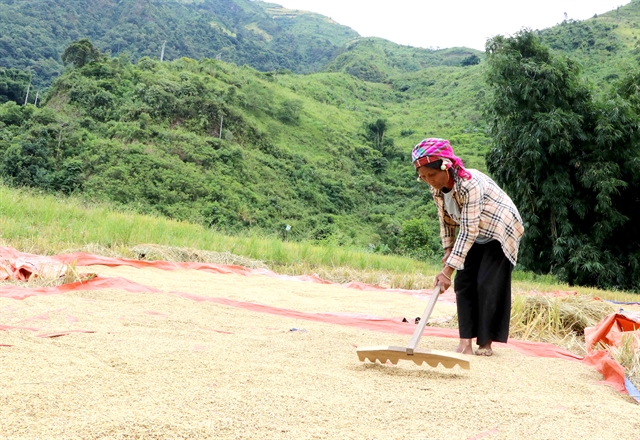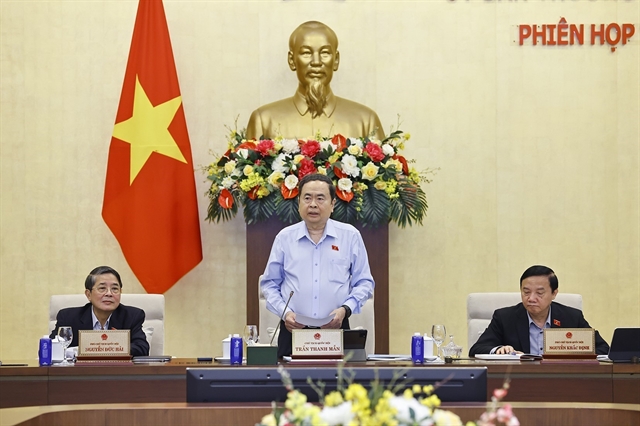 Society
Society

 |
| A survey by the National Assembly’s Commission for Ethnic Minority Affairs revealed that approximately 210,400 ethnic minority households are in need of land support for production purposes. — VNA/VNS Photo Việt Hoàng |
HÀ NỘI — With the amended Law on Land expected to be reviewed and approved this year, experts have been voicing their opinions and discussing measures to protect the land use rights of ethnic minorities.
According to the latest survey on the socio-economic status of 53 ethnic minorities, conducted by the National Assembly’s Commission for Ethnic Minority Affairs in 2019, there are 24,532 households nationwide that witness a shortage of residential land among these communities.
Meanwhile, approximately 210,400 ethnic minority households are in need of land support for production purposes.
The causes identified include insufficient solutions for residential and production land, as well as a lack of regulations responding to the traditions and customs of ethnic communities in land use.
A representative from Việt Nam Fatherland Front Central Committee has proposed that the amended law include the issuance of land use rights and transfer certification (called the ‘red book’) for ethnic minorities’ residential and production land.
“We think the residential and production land provided by the State support for ethnic minorities need to have a separate red book, and be limited, if not to say prohibited, in terms of land transfer,” said the representative.
In the case where a person of an ethnic minority wishes to transfer their land for specific reasons, such as migration with their children, it is suggested that the opinion of the district-level People’s Committee or province-level agency for ethnic minorities is required.
Đinh Thị Chuyên San, deputy chairwoman of the Advisory Board on Democracy and Law of Bắc Kạn Province Fatherland Front, agreed that specific regulations are needed for land issues concerning ethnic minorities.
She also voiced her concern regarding Article 52, which stipulates that individuals of ethnic minorities using land allocated by the State or under the State’s support policies can transfer or donate their land use rights after 10 years.
In reality, there are cases where poor ethnic households, due to extreme financial difficulties, transferred their land rights or put them up as collateral, after which they cannot afford to reclaim, she said.
Alongside land management, many people also agreed that the amended Law on Land needs to address the current bottlenecks, especially when the State’s policies on land recovery, compensation and resettlement are implemented.
Quàng Văn Hương, vice chairman of the NA’s Council for Ethnic Affairs said that the amendment needs to include detailed regulations which respond to the specific issues and traditions of ethnic minorities, especially in remote areas.
He said: “If these people continue their agricultural production, they must be immediately assigned land which fits their practices and lifestyle, provided that a land fund is available.
“If they move to a non-agricultural sector, vocational training offered to them must fit the market demands and without coercion.”
The document must also ensure that those who have their land recovered will be relocated with an income and living conditions equivalent to, or better than at the old location.
Phạm Hải Hoa, chairwoman of Hà Nội Farmers’ Union said the draft amendment stated government’s responsibilities for the land areas for ethnic minorities and their cultures and traditions.
This means that the document must also specify the detailed criteria for the ‘equivalent’ living conditions, she said.
Nguyễn Tiến Thanh, vice chairman of Lào Cai Province’s Advisory Board on Democracy and Law also said that the draft has clarified the regulations on building land pricing. He added that the same practices should be applied to the valuation of assets on a particular piece of land.
He said: “If done well, this will address the shortcoming in protecting the interests of land users and prolonged complaints, as well as preventing corruption cases between businesses and officials.”
Thanh added that the amendment should also allow capital contributions through land use rights, which needs legal assistance from legal support centres and farmers’ associations to prevent land appropriation. — VNS




